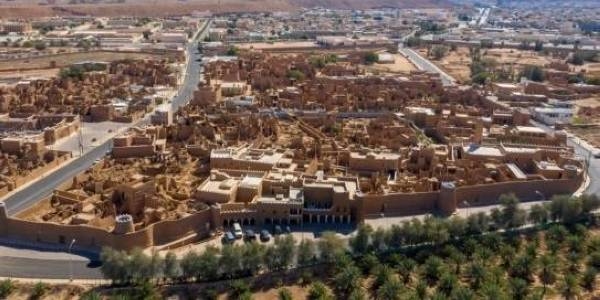A new flavor for Saudi restaurant meals starting July 1
Saudi Gazette report
RIYADH — In less than 10 days, the restaurant experience in Saudi Arabia will be completely different from what the diners have been used to for decades. Starting July 1, the new rules regulating restaurant meals are scheduled to take effect, in accordance with the Saudi Food Regulation Policy.
The most notable changes will include a list of the menu's ingredients, including calories, details of its nutritional components, and a warning about any ingredients that could cause an allergic reaction in some diners.
The new regulation will be implemented by the Saudi Food and Drug Authority (SFDA), which emphasizes the need to provide healthy and safe food options for families and diners of restaurants, especially given the large number of people who require meals that do not cause allergies.
Starting July 1, restaurants will be required to change their menus to include a clear list of calories, fat and sugar content, sodium (salt) levels, and clear information about allergens. SFDA noted that food outlets will be mandated to display detailed nutritional information on their menus from this date.
This includes placing a 'saltshaker' label next to meals high in sodium as a clear guide, disclosing the caffeine content of beverages, and indicating the estimated time required to burn off the calories from a meal. These requirements apply to all menus, whether physical or online, and extend to online food ordering platforms.
A large segment of Saudi consumers have welcomed these new regulations, especially given the growing concern in the Kingdom about rising rates of diabetes, heart disease, and obesity. Displaying this information will enable diners to adequately protect their health.
Restaurant and café owners have welcomed the new food regulations, to the point that some have even taken the initiative to choose food alternatives that are healthier for their customers.
Through these initiatives, the SFDA aims to promote healthier food options, encourage a balanced lifestyle, and help consumers track their salt and caffeine intake in relation to approved health recommendations.
The Saudi government is providing all possible assistance to owners of restaurants and cafés to navigate this phase and adapt to Saudi food regulations. The new regulations reflect the Kingdom's Vision 2030 goal of improving the quality of life for citizens.
Latest Saudi Gazette
- Saudi Arabia to start implementing sale of livestock by weight from June 26Saudi Gazette report RIYADH — The Saudi Ministry of Environment, Water, and Agriculture announced that new regulations and mechanisms for the sale of live livestock, meant for slaughter, by weight will
- Nearly 6,000 new urban heritage sites registered in National Urban Heritage RegisterSaudi Gazette report RIYADH — The Saudi Heritage Commission announced on Sunday the registration of 5,969 new urban heritage sites in the National Urban Heritage Register, bringing the total number
- Crown Prince receives calls from Macron and Meloni, stresses need for de-escalationSaudi Gazette reportRIYADH — Saudi Crown Prince and Prime Minister Mohammed bin Salman received phone calls on Sunday from French President Emmanuel Macron and Italian Prime Minister Giorgia Meloni to
- GCC leaders affirm unity amid rising regional tensionsSaudi Gazette reportRIYADH — Saudi Crown Prince and Prime Minister Mohammed bin Salman made a series of phone calls on Sunday to leaders of Gulf Cooperation Council (GCC) states to discuss escalating
- Al-Rajhi: Employee engagement rate in public sector reaches 83.4%Saudi Gazette report RIYADH — Minister of Human Resources and Social Development Eng. Ahmed Al-Rajhi said that the Saudi employee engagement indicators for the year 2024 has achieved tangible positive
- GCC Chief: Direct targeting of Iranian nuclear facilities risks regional escalationSaudi Gazette report RIYADH — Gulf Cooperation Council (GCC) Secretary General Jasem Albudaiwi emphasized that the events in the region on Sunday, including the direct targeting of Iranian nuclear facilities













